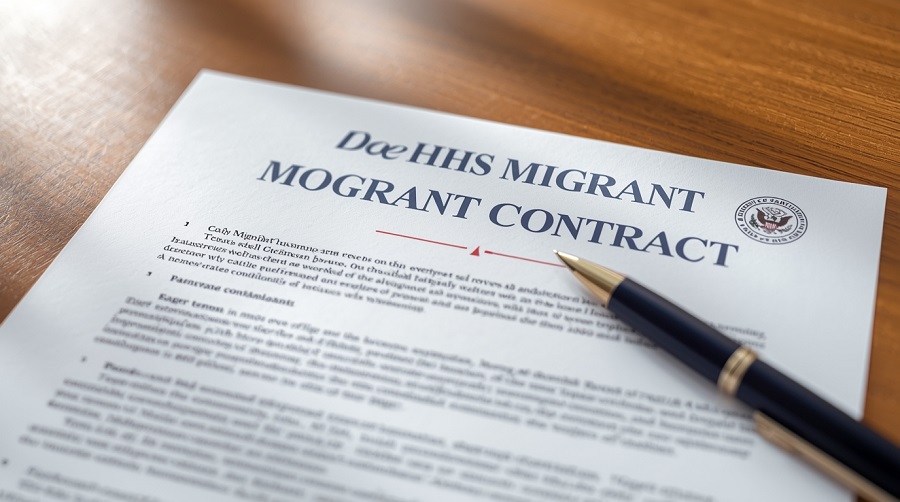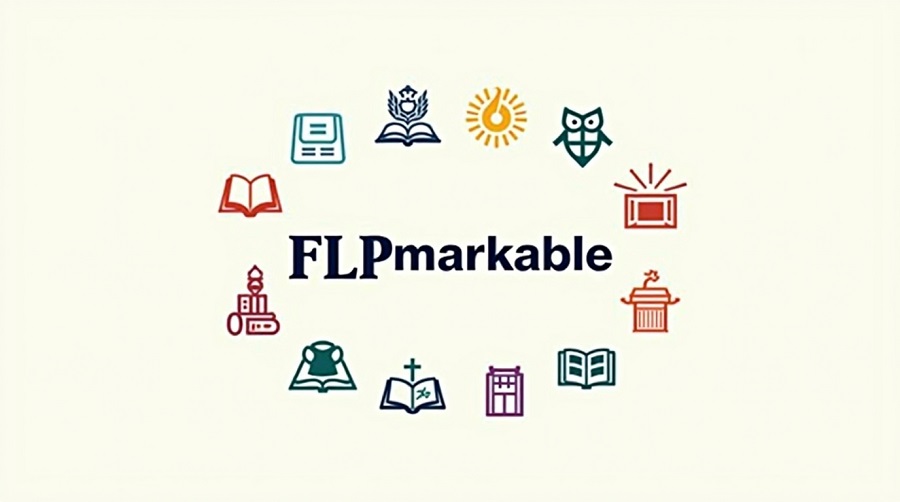Introduction to the Concept of the Doge HHS Migrant Housing Contract
When people hear about the Doge HHS Migrant Housing Contract, they often imagine it as a simple agreement between an agency and a provider. In reality, it represents something far more complex, touching on humanitarian needs, federal responsibilities, community partnerships, and the role of private entities in delivering public services.
At its core, the phrase ties together three elements: Doge, which has become a popular cultural and sometimes financial symbol in digital spaces, HHS, which refers to the U.S. Department of Health and Human Services, and migrant housing, which reflects one of the most pressing social issues in the United States and beyond. The convergence of these concepts forms a narrative about how governments, institutions, and even cultural movements are responding to the growing demand for structured and humane housing solutions for migrants who arrive under challenging and uncertain circumstances.
Understanding the Role of HHS in Migrant Housing
The U.S. Department of Health and Human Services has long been tasked with the responsibility of supporting vulnerable populations, particularly unaccompanied children, families facing hardship, and those arriving at the borders in need of emergency assistance. Migrant housing contracts are agreements made with contractors or service providers who can deliver safe accommodations, medical care, and basic resources to individuals awaiting case review or legal processing.
These contracts are more than administrative documents; they outline the expectations for dignity, safety, and health standards that must be upheld. In the context of the Doge HHS Migrant Housing Contract, the emphasis falls on innovative approaches, the blending of modern cultural or financial tools with governmental systems, and the search for cost-effective but humane solutions that meet both short-term and long-term needs.

Why Housing Contracts Are Central to Migrant Care
Every year, thousands of migrants arrive seeking safety, opportunity, or reunification with family. While immigration policy often dominates the political debate, the immediate humanitarian challenge is housing. Without proper shelter, migrants face risks from weather, health issues, and safety concerns. Housing contracts allow the government to partner with organizations that can scale quickly to provide beds, food, and services.
These contracts also define standards such as how many individuals a facility may accommodate, the medical staff required, language support availability, and the security measures to protect residents. The Doge HHS Migrant Housing Contract can be seen as a symbolic representation of how modern society tries to bridge urgent humanitarian needs with creative frameworks that resonate with both public institutions and cultural trends.
The Symbolism of Doge in a Policy Context
Doge, originally a playful internet meme associated with a Shiba Inu dog and later a cryptocurrency phenomenon, has come to symbolize digital empowerment, grassroots energy, and internet-driven creativity. When placed in the context of a migrant housing contract, the Doge element adds a layer of cultural relevance. It signifies how ideas born from internet culture can intersect with serious social responsibilities.
For some, it might seem humorous or odd, but it also highlights the reality that policy conversations now exist in a digital world where memes, cryptocurrencies, and decentralized systems influence public discourse. In this way, the Doge HHS Migrant Housing Contract can be seen as both literal and metaphorical: literal in the sense of an agreement related to housing migrants, and metaphorical in how it reflects the blending of old government structures with new cultural and digital forces.
Contract Frameworks and Accountability
Migrant housing contracts typically include strict accountability measures. Providers must document how funds are used, how many people are housed, the quality of food and services, and the safety protocols in place. Inspections are common, and non-compliance can result in financial penalties or termination of the contract. Transparency is vital because taxpayer dollars fund these services.
The Doge HHS Migrant Housing Contract suggests a forward-looking model where accountability might even extend to decentralized tracking systems, blockchain-based reporting, or community oversight, making the process more transparent and resistant to corruption. This reflects a growing demand for clarity in public spending and a recognition that digital innovation could make systems more trustworthy.
Humanitarian Standards and Ethical Responsibility
Beyond dollars and data, the essence of migrant housing contracts is the commitment to treat people with dignity. Migrants are not statistics; they are families, children, and individuals who often risk everything to escape hardship. The ethical responsibility behind the Doge HHS Migrant Housing Contract is to remind all stakeholders that cultural creativity and government authority must meet human need in a compassionate way. Contracts, therefore, outline medical care standards, nutritional requirements, psychological support access, and opportunities for education or recreation, especially for children. This humanitarian dimension ensures that housing does not become warehousing, and that individuals in transition are not stripped of their humanity.
Financial Structures and the Idea of Innovative Funding
Traditional migrant housing contracts are financed through federal budgets allocated by Congress. Yet as demands grow, so does the search for alternative or supplementary funding mechanisms. The Doge element invites speculation about whether creative funding models such as community donations, decentralized digital assets, or even tokenized support systems could be integrated into future frameworks. While still theoretical, the idea is that popular culture and digital currencies could rally public attention and generate resources in ways that bureaucratic processes cannot. This financial imagination connects the public to policy in a direct way, making it possible for everyday individuals to feel they are part of the solution.

Community Impact of Migrant Housing Contracts
Whenever housing contracts are signed, the impact is felt not only by the migrants but also by the local communities that host the facilities. Residents may express concerns about safety, resources, and infrastructure. At the same time, contracts often bring jobs, investment, and new opportunities for service providers. The Doge HHS Migrant Housing Contract symbolizes a balance between welcoming those in need and supporting the well-being of the communities involved. Open communication, transparency, and fair distribution of resources are essential to prevent division and encourage cooperation. This social aspect shows that migrant housing is not just a federal issue but a neighborhood reality that shapes everyday life for both hosts and newcomers.
Political and Cultural Debates
It is impossible to discuss migrant housing contracts without acknowledging the political landscape. Some view these contracts as necessary humanitarian measures, while others criticize them as incentives for migration. The introduction of Doge into this context adds another cultural layer, sparking debates about whether serious policies should adopt internet-born ideas or remain traditional and formal. This debate reflects a broader societal question: how do we adapt government institutions to a world where digital culture and politics collide daily? For some, the Doge HHS Migrant Housing Contract might be a creative way to engage younger generations in policy awareness, while for others, it might seem like a distraction from the hard realities of immigration reform.
The Future of Migrant Housing and Creative Contracts
Looking ahead, the future of migrant housing contracts will likely involve more collaboration, more transparency, and more integration of technology. The Doge HHS Migrant Housing Contract suggests that even unconventional cultural phenomena can inspire innovation in how society organizes care for vulnerable populations. Whether through blockchain-based accountability, community-driven funding, or digital advocacy campaigns, the blending of culture and policy could reshape what housing support looks like. At the heart of it all remains the same question: how do we care for people in transition, and how do we uphold values of safety, dignity, and justice while doing so?
Conclusion
The Doge HHS Migrant Housing Contract is more than a phrase. It is a lens through which we can examine the intersection of government responsibility, cultural creativity, and humanitarian need. By looking at how contracts are structured, how funds are managed, how communities are affected, and how culture influences discourse, we see that migrant housing is not just a logistical matter but a moral one. As society continues to evolve, the ways we think about solutions will also evolve. The Doge HHS Migrant Housing Contract may not be a literal policy on every desk in Washington, but as a concept, it pushes us to think beyond the ordinary and to imagine a future where even memes, digital tools, and cultural movements can play a role in shaping humane and effective responses to migration.
Frequently Asked Questions
What is the Doge HHS Migrant Housing Contract?
It refers to a framework or concept combining HHS migrant housing agreements with cultural or digital innovation, symbolized by Doge.
Why does HHS create migrant housing contracts?
HHS partners with service providers through contracts to ensure migrants, especially children and families, receive safe housing, food, and healthcare.
How is Doge connected to migrant housing?
Doge represents cultural and digital innovation, showing how new ideas like crypto and internet culture can influence serious policy conversations.
What are the main goals of these housing contracts?
The primary goals are to provide safe shelter, maintain health standards, ensure accountability in spending, and support migrants humanely.
How do migrant housing contracts impact local communities?
They can bring both challenges and benefits, including job opportunities, resource allocation, and the need for transparency to maintain community trust.



